Iraqi prime minister pays visit to Basra after week of unrest, violence
Iraqi Prime Minister Haider al-Abadi has paid a visit to the country’s southern oil-rich port city of Basra, a week after protests over alleged corruption and government neglect escalated into deadly violence.
According to a statement released by his office, Abadi arrived in Basra early Monday at the head of a large delegation.
An unnamed source close to the Council of Ministers said the prime minister is being accompanied on his visit by several top government officials, including the ministers of information, defense, interior, health and water resources.
“In the past, Basra did not have an efficient management to improve its status quo. We came here to cooperate with local residents and to provide them with the services they need. We will not leave Basra until several projects aimed at improving public services are launched,” Abadi said in a statement broadcast on the public broadcaster and television network al-Iraqiya.
The visit came days after two leading parliamentary coalitions of Sairoon and al-Fatah called on the prime minister to step down over Basra protests.

“We demand Abadi and his government to resign immediately and to apologize to the people of Iraq,” Hassan al-Aqouli, spokesman for Sairoon coalition, backed by influential Shia cleric Muqtada al-Sadr, said in a press conference on Saturday after an emergency parliament session.
Aqouli added, “Sairoon Coalition is seeking to form a national and strong government to save the country.”
The Fatah (Conquest) alliance, led by Badr Organization Secretary General Hadi al-Ameri, also asked Abadi to resign, noting that “all political blocs agree that Abadi's government has failed to meet its commitment toward Basra province.”
“The people of Basra are fed up with the promises of the government,” Ahmed al-Asadi, spokesman of Fatah alliance, said.

Last week, at least 12 protesters were killed in Basra and many of its institutions were set ablaze. Calm returned to the city late on Saturday.
Basra has long witnessed complaints among its 2.5 million residents about failing infrastructure, power cuts and corruption. Water supply is also widely criticized for high salinity.
Anger boiled over on September 4 after more than 30,000 people were hospitalized by water pollution.
VIDEO | US support for Israel’s expansionist agenda
Palestinians granted only 66 building permits in West Bank over 11 years: Report
Somaliland ready to give US access to its minerals, military bases: Minister
VIDEO | Iran's game changing retaliation boxes- part 1
VIDEO | Iran's game changing retaliation boxes- Part 2
VIDEO | Palestinian widow raises three kids in Gaza as her husband killed by Israel
Palestinian teen killed as raids and settler violence intensify across West Bank
Iran’s layered arsenal primed to deter – and decimate – US warships in Persian Gulf


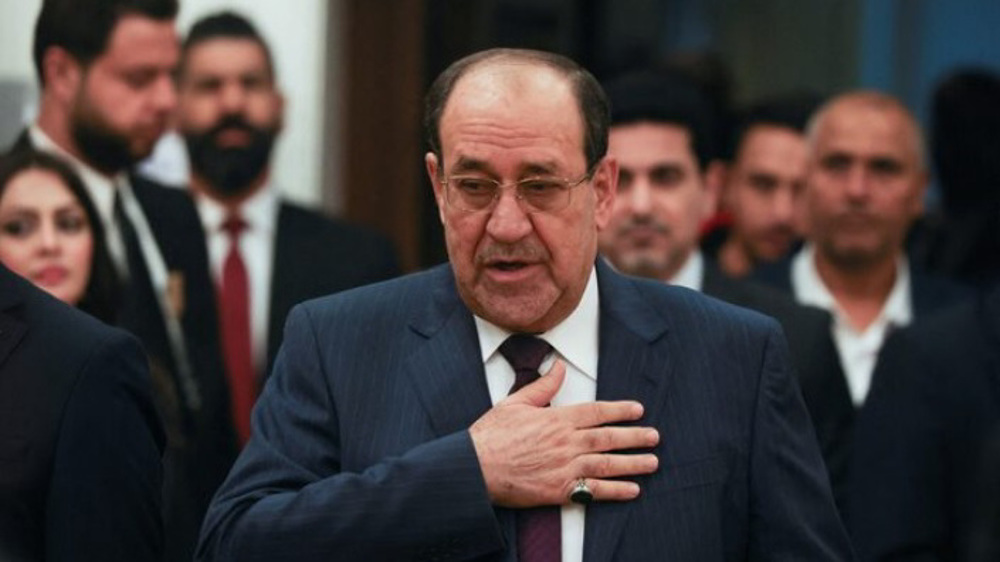
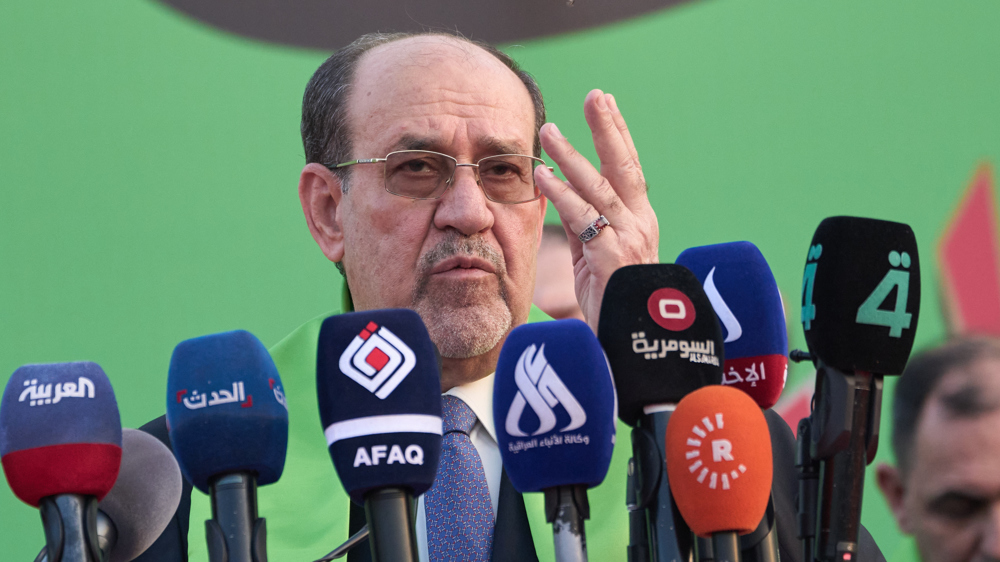
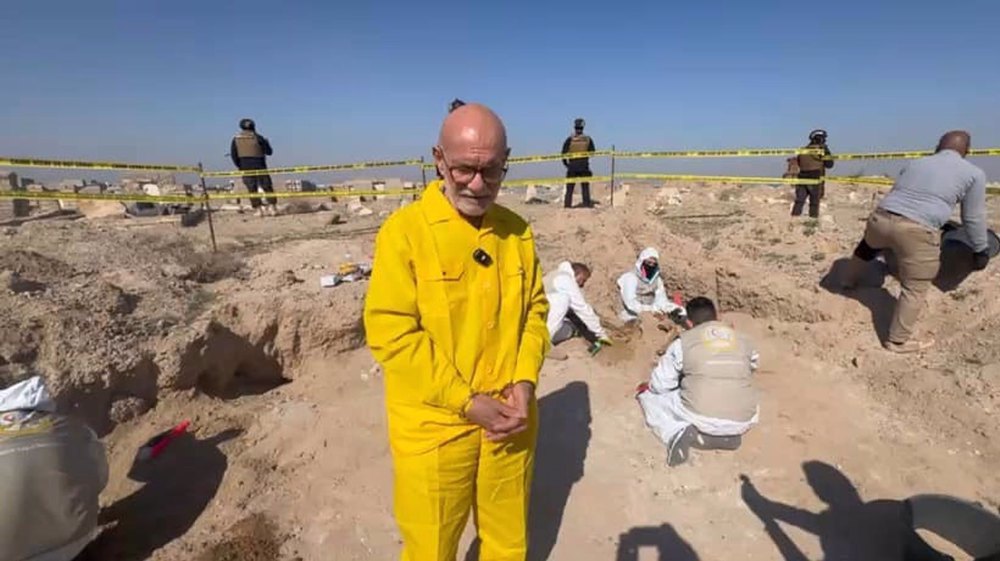





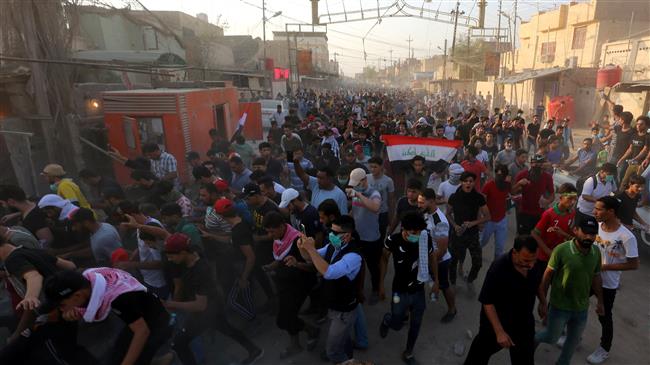

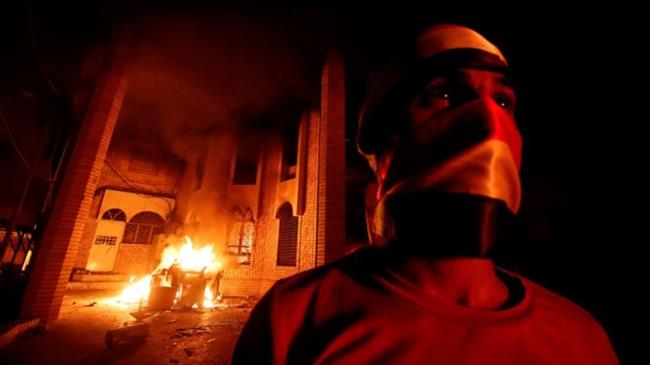
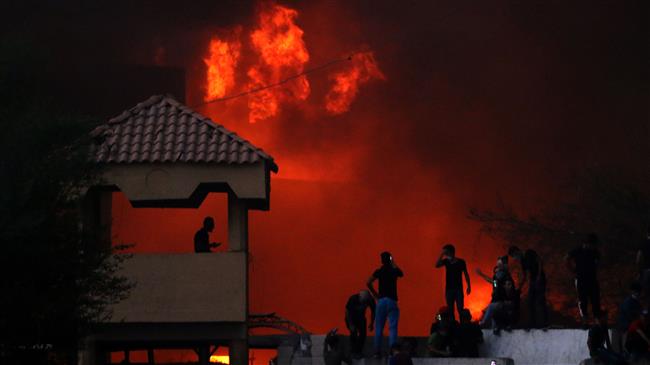

 This makes it easy to access the Press TV website
This makes it easy to access the Press TV website